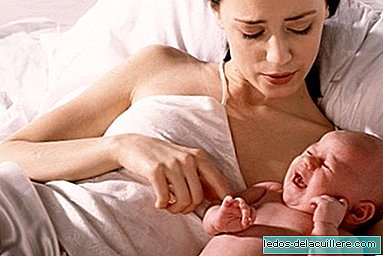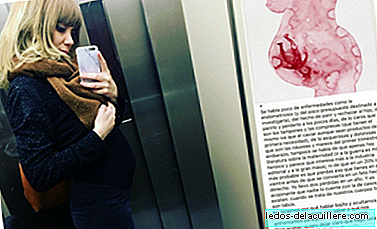
April is the month of awareness about autism. Autism is a disorder of brain development that begins in children before the age of three and that impairs their communication and social interaction causing restricted and repetitive behavior.
Cases have increased in the last decade and although much research is being done about this condition, even the knowledge of it is very superficial.
Steven Jerome Parker, WMblog collaborating pediatrician has published a Top of the 10 questions that science has not yet been able to explain about autism. There are ten questions realistically explained under the scientific criteria to help those parents who have an autistic child.
- What causes autism?
This is the most important question. Once we understand the cause of autism we can reach the cure. Current theories seem to indicate that it is due to a complex interaction between the environment and genetics. There are children with genes susceptible to autism and something in the environment causes those genes to express themselves.
- Is there a cure for autism?
So far there is no cure. The treatments are educational, based on the development of skills, not on their healing. The good news is that a lot of research is being done in this area with the hope of a realistic cure. Someday we will be able to recognize the way in which an autistic brain is modified in the womb, with the purpose of giving medication or hormones to normalize the architecture of an autistic brain. Or perhaps the application of a medication that regenerates nerve connections, or that an educational therapy performed in a timely manner has a positive effect. There is no doubt that a cure will be found in the future.
- Are there genes associated with autism?
No wonder there are genes associated with autism. It is known for example, that if an identical twin is autistic, the other has a 70% -90% chance of being too. Or that if a child has autism, there is a 6% risk that his brother will be too.
The good and the bad news is that every day genes associated with autism are discovered. It's good news because by understanding the genetic basis of autism, we can understand how the autistic brain differs from a normal one and what we could do about it. The bad news is that the cause of autism does not seem to be one. Apparently there are many different genes and many combinations of them that increase the risk of autism. There are probably multiple ways to explain autism (and perhaps several types of autism), based on genetic differences. It would be easier if there were only one genetic basis (as, for example, with sickle cell anemia). This makes the promise of genetic therapy more difficult.
- Are there environmental triggers for autism?
Autism cases have increased in the last decade. It is thought to be due to something present in the environment that triggers autism in a susceptible child.
They could be immunizations, the trimerosal, but the evidence affirms otherwise. An infection of some kind? Environmental pollution? Something in the diet? Allergy? The fact is that we do not know. The great need to find an explanation of the causes of autism has led to the emergence of theories without medical evidence. Extraordinary theories require extraordinary evidence. For example, fear of vaccines has unfortunately led some children to get infectious diseases that could have been avoided.
- What is the prevalence of autism?
In 1980 the prevalence of autism was 1 in 2000-3000 children. In 1990 it was about 1 case among 1,000. Currently the figure is 1 in 150.
- Have cases of autism really increased?
Some think that the increase in cases of autism is not real. They argue, quite reasonably, that they are now more aware of autism and that they can be more easily diagnosed at an early age. On the other hand it is believed that there has been an increase of around 15 times more. Perhaps we will find the definitive answer to this controversy.
- What is the best educational program to treat autism?
This is another area where there are different opinions. For example, in my city (Boston) an autistic child receives “ABA therapy” or “cognitive therapy” depends on the program applied and its philosophy. But does that really help?
Another issue includes what is the intensity of the treatment? We really do not know. We need more research to measure the effectiveness of educational programs. Autism is clearly a disorder of the brain, for any treatment to be effective, an intensive immersion in an educational program (25 hours a week) and start it as soon as possible.
- Where does a "capricious" behavior end up that ultimately ends up being an autistic spectrum behavior?
When a child is very autistic, all the professionals who evaluate him agree on the diagnosis. However, what about the child who is "high functioning", that is, very intelligent with verbal skills, but does not make contact with the eyes, etc? Specialists disagree about which children are within the “autistic spectrum” or which are not.
In other words, if a child has peculiar features, but not enough to look like an autistic, is it better for him to be labeled as autistic? Or capricious ?. This means that many children with a moderate level of autism are not diagnosed and do not have access to the special education they need.
- How can parents help an autistic child?
This is an easy question: Be your parents Some parents choose to dedicate their lives to the education of their autistic children. Others try to find the best services and protect them.
However, the aspect that helps them most and that is essential in parenting is that of being loving parents. You can find many special schools and doctors that help autistic children, but nobody else plays a more fundamental role than parents who give them love and acceptance that provide a strong emotional bond with the real world. This is the real question.
- What is the best way to make an early diagnosis?
Research is being done to see if autism can be detected early in the hope of getting better results in its long-term treatment.
Studies with siblings of autistic children (in ages of 6.12.24 and 36 months) can provide clues in 12-month-old children, such as not responding to being called by name, being less communicative and growing head faster.
These aspects will continue to be studied to better recognize autistic children in their developmental phases.












